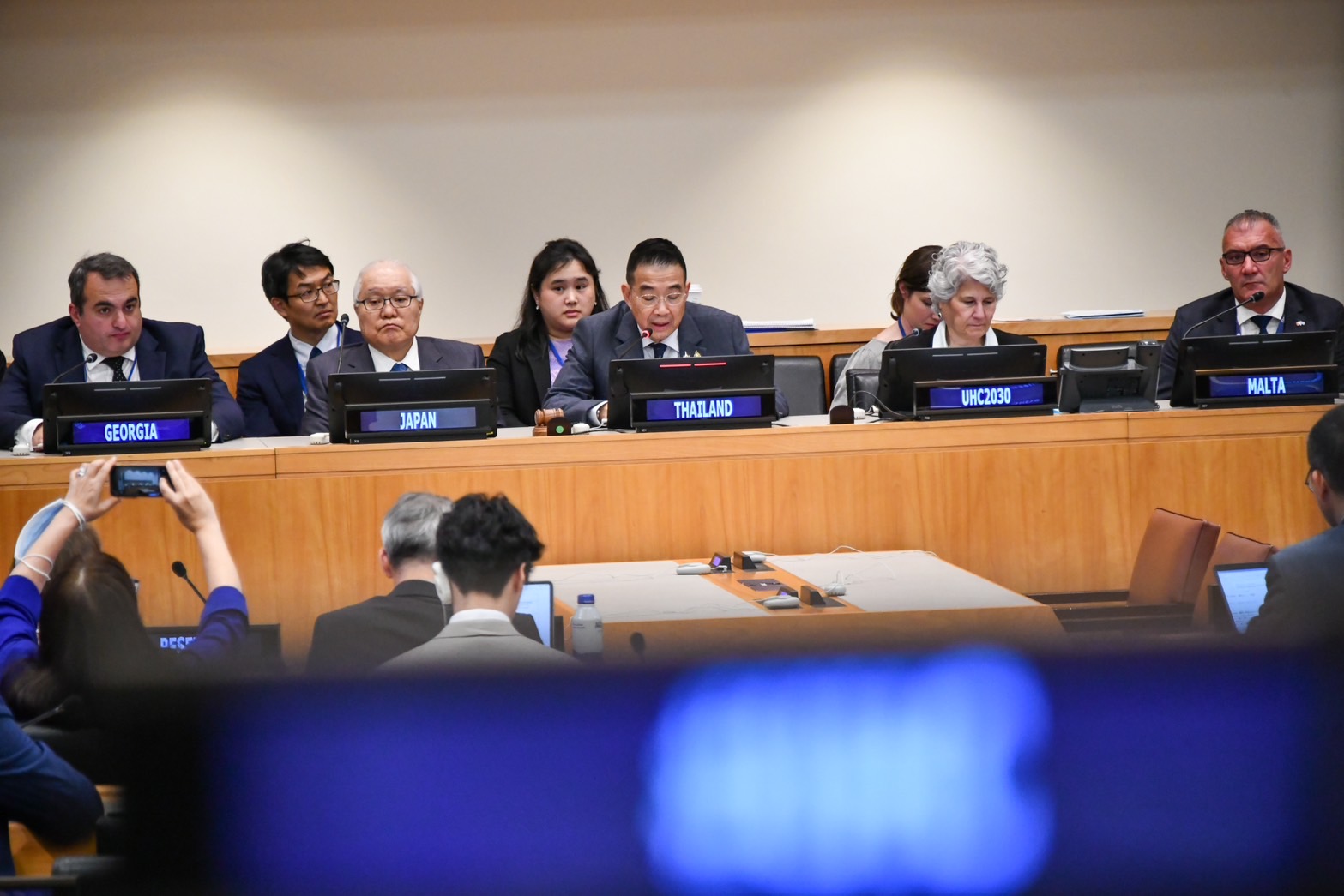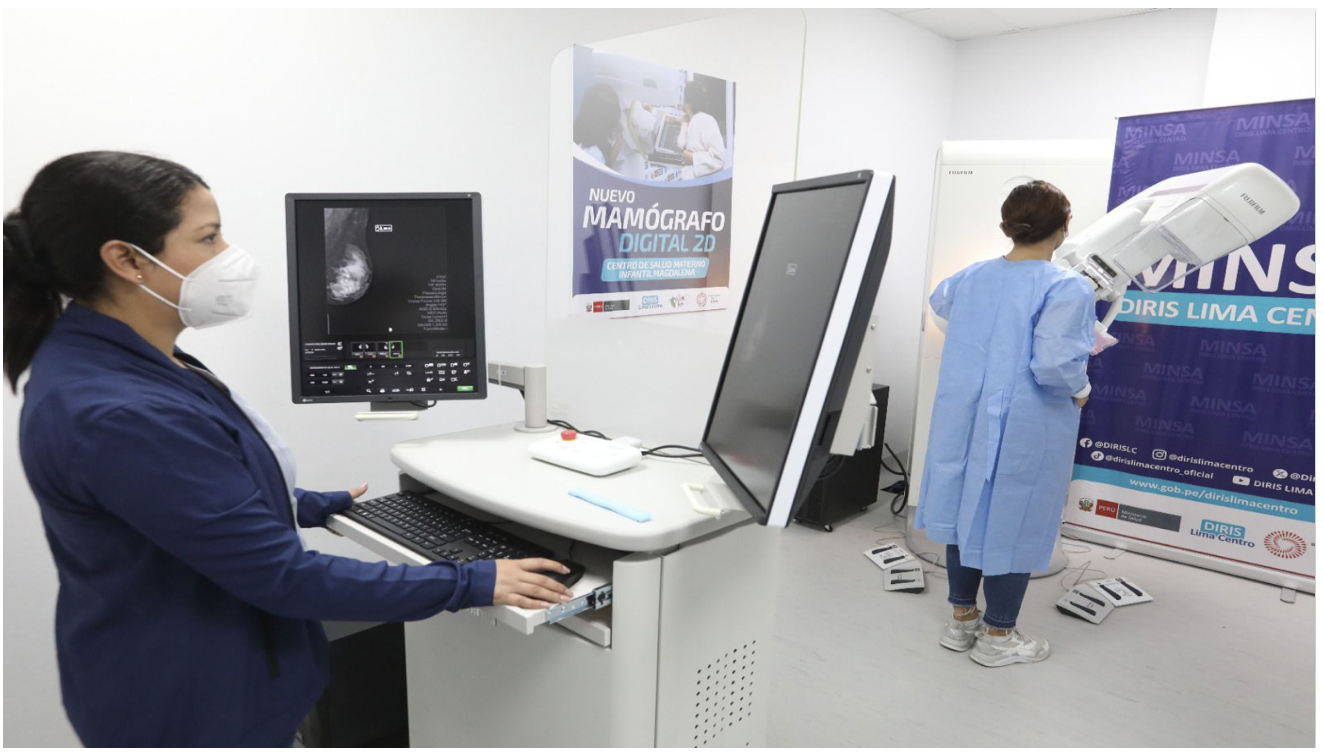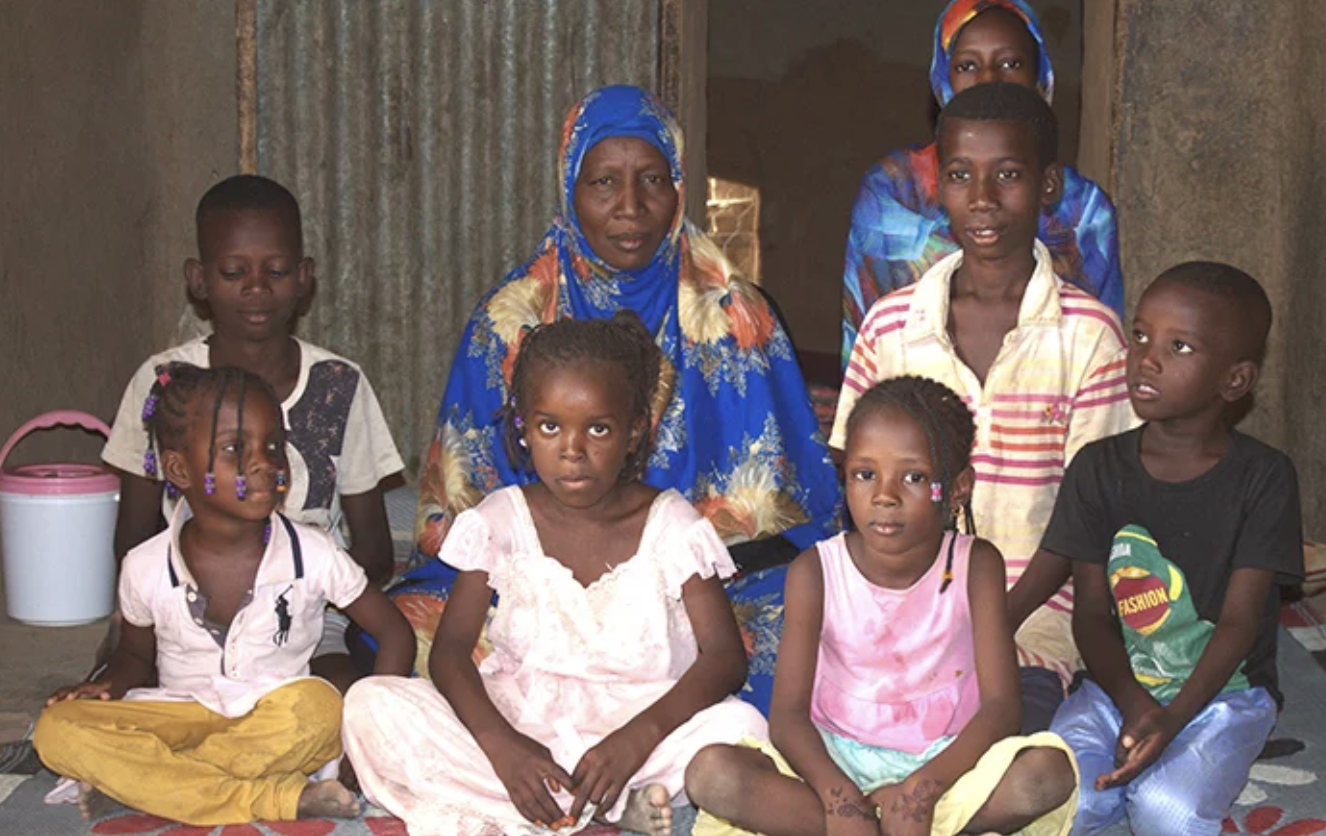The National Strategic Plan aims to accelerate and amplify the national response to the dynamics of the epidemic through a set of strategies and interventions. These actions should contribute to breaking the STI/HIV transmission chain and ensuring universal access to...

5th Annual Ministerial Meeting of the Group of Friends on Universal Health Coverage
On September 24, the 5th Annual Ministerial Meeting of the Group of Friends of Universal Health Coverage and Global Health, themed ‘Financial Protection: The Key to Unlocking Universal Health Coverage and Ensuring Equitable Access for All,’ was held at the UN...
National Social Protection Strategy-2012
The document consists of four parts and several appendices. The first part introduces the definitions, dimensions and conceptual framework of social protection(chapter 1), outlines the main elements of the national context in relation to the issue at hand(chapter 2)...
PNDS 2022-2030 Volume II: Integrated monitoring and evaluation plan
The PNDS 2022-2030 Performance Framework is built around four (04) programs: Program 1: Accelerating the reduction of maternal, neonatal and infant/child mortality Program 2: Strengthening disease control Program 3: Health security and public health emergency...
PNDS 2022-2030 Volume 1: Situational analysis and PNDS
The 2022-2030 national health development plan will be deployed in an economic context of major constraints linked to the country's state of underdevelopment, but also of promising opportunities and prospects for economic growth and a better distribution of national...
Out of pocket care costs among HIV and hypertension co-morbid patients in Uganda
This study investigates the financial burden of out-of-pocket costs for patients with both HIV and hypertension (HTN) in urban and peri-urban Uganda. Through a survey of 94 patients from 10 clinics in Wakiso and Kampala districts, researchers assessed the direct,...

More Singaporeans will get higher healthcare subsidies
The Ministry of Health (MOH) announced an increase in public healthcare subsidies across range of services for Singaporean residents, beginning from October 1. This increase will benefit approximately 1.1 million residents.As reported by Daphne Yow in CNA, the MOH...
Does health aid matter to financial risk protection? A regression analysis across 159 household surveys, 2000–2016
The research article "Does health aid matter to financial risk protection? A regression analysis across 159 household surveys, 2000–2016," authored by Jacopo Gabani, Marc Suhrcke, Sven Neelsen, Patrick Hoang-Vu Eozenou, and Marc-Francois Smitz, explores the...

P4H and RDI announce collaboration to support innovation in health and social protection for Persons Living with a Rare Disease
Rare diseases cause significant financial hardship, including high medical costs and lost income. P4H Network and RDI are collaborating to advocate for innovative health financing solutions to reduce this burden.Rare diseases affect more than just health: they are...

Oncology treatment available to insured population in Peru
169 thousand insured with various oncological diagnoses were treated between 2023 and 2024 nationwideThe Seguro Integral de Salud (SIS) transferred US$ 104 million between 2023 and 2024 for the care of 169 thousand policyholders with various oncological diagnoses. The...
Law N°31-2011 instituting the social security system
On July 15, 2011, the President of the Republic of Congo promulgated the law instituting " a social security system designed to protect workers and their families, as well as other categories of the population, against the risks and hazards inherent in work and life...

Transforming lives in Mauritania through adaptive social protection
Henniya mint Teyib is one of over 200,000 households benefiting from the Tekavoul National Social Transfer Program in Mauritania, which addresses the country’s significant poverty challenges, with nearly 30% of the population living below the poverty line. The...
Spain: health system review 2024
The "Spain: Health System Review 2024," published by the European Observatory for Health Systems and Policies, provides a comprehensive analysis of Spain’s decentralised national health system, known as the Sistema Nacional de Salud (SNS). The SNS offers nearly...

Conakry: Prime Minister launches medical coverage for government employees and pensioners
On August 7, 2024, the Prime Minister launched medical coverage for Guinean civil servants and pensioners, an initiative carried out by the Caisse Nationale de Prévoyance Sociale (CNPS). This reform, in force since August 1, marks a major step forward for the...
Pakistan’s path to universal health coverage
This paper assesses Pakistan’s progress toward achieving UHC at the national and subnational level. Pakistan’s progress toward UHC aligns closely with its economic development trajectory and policy efforts in expanding UHC program. However, economic underdevelopment...
